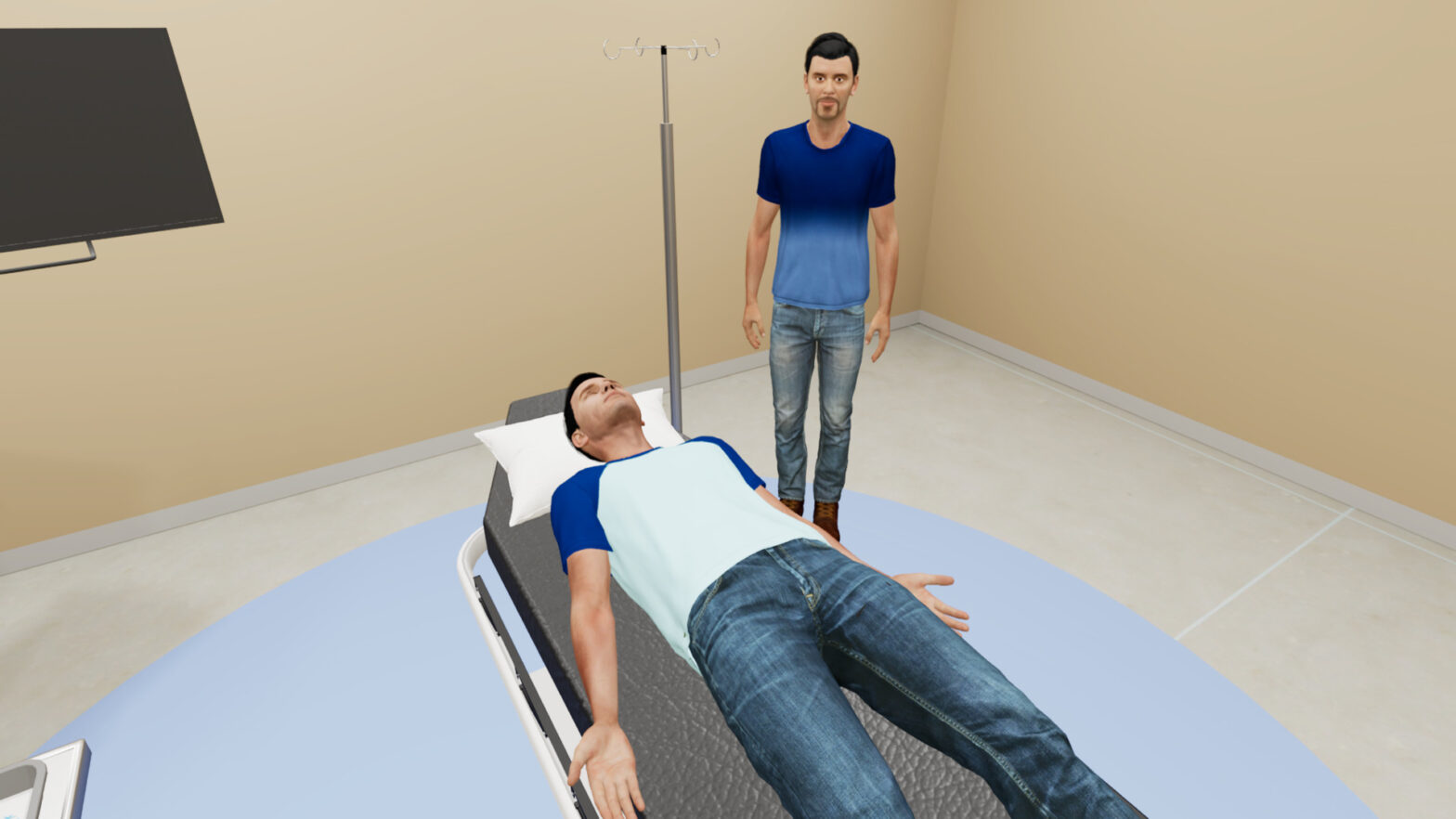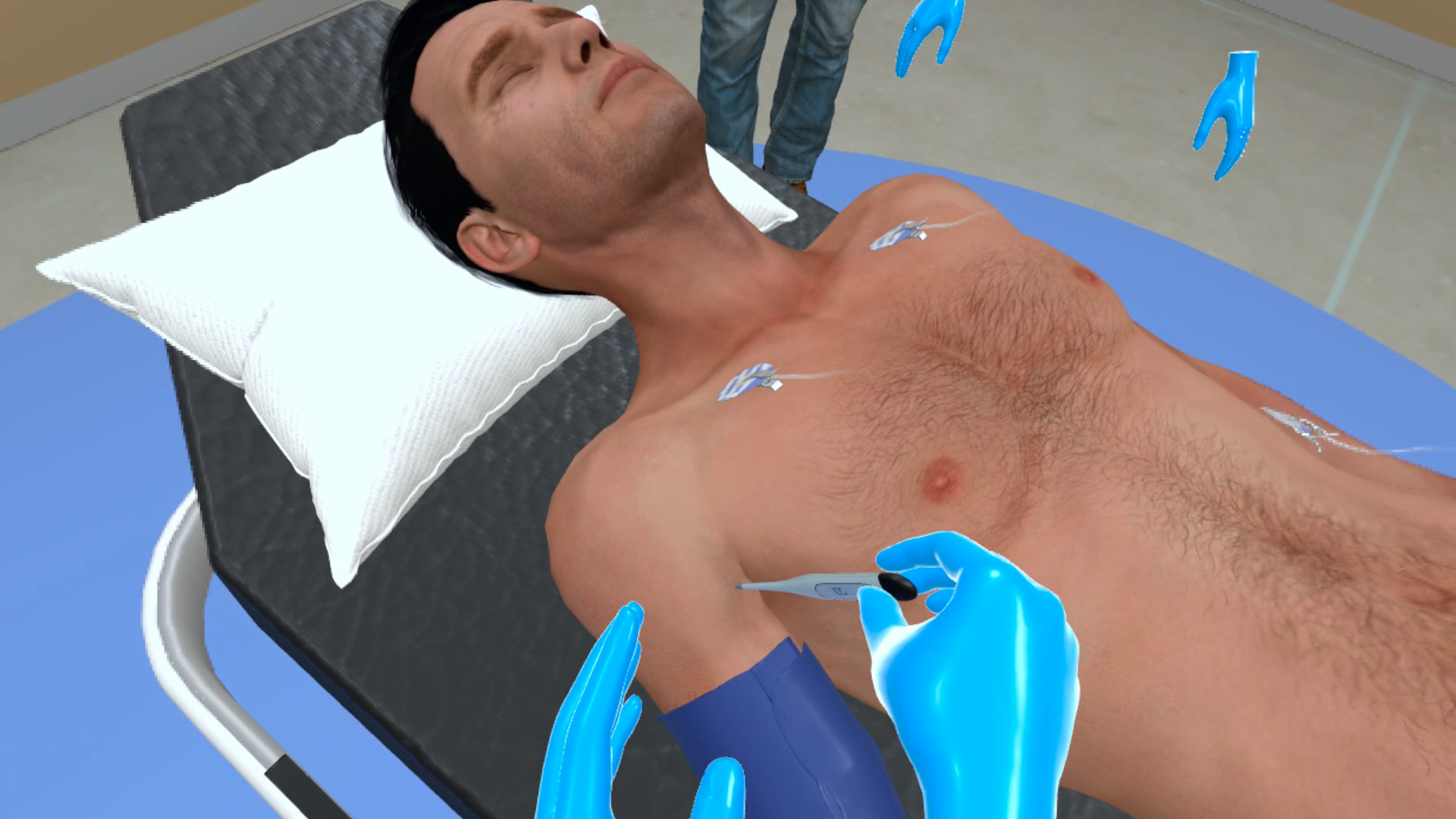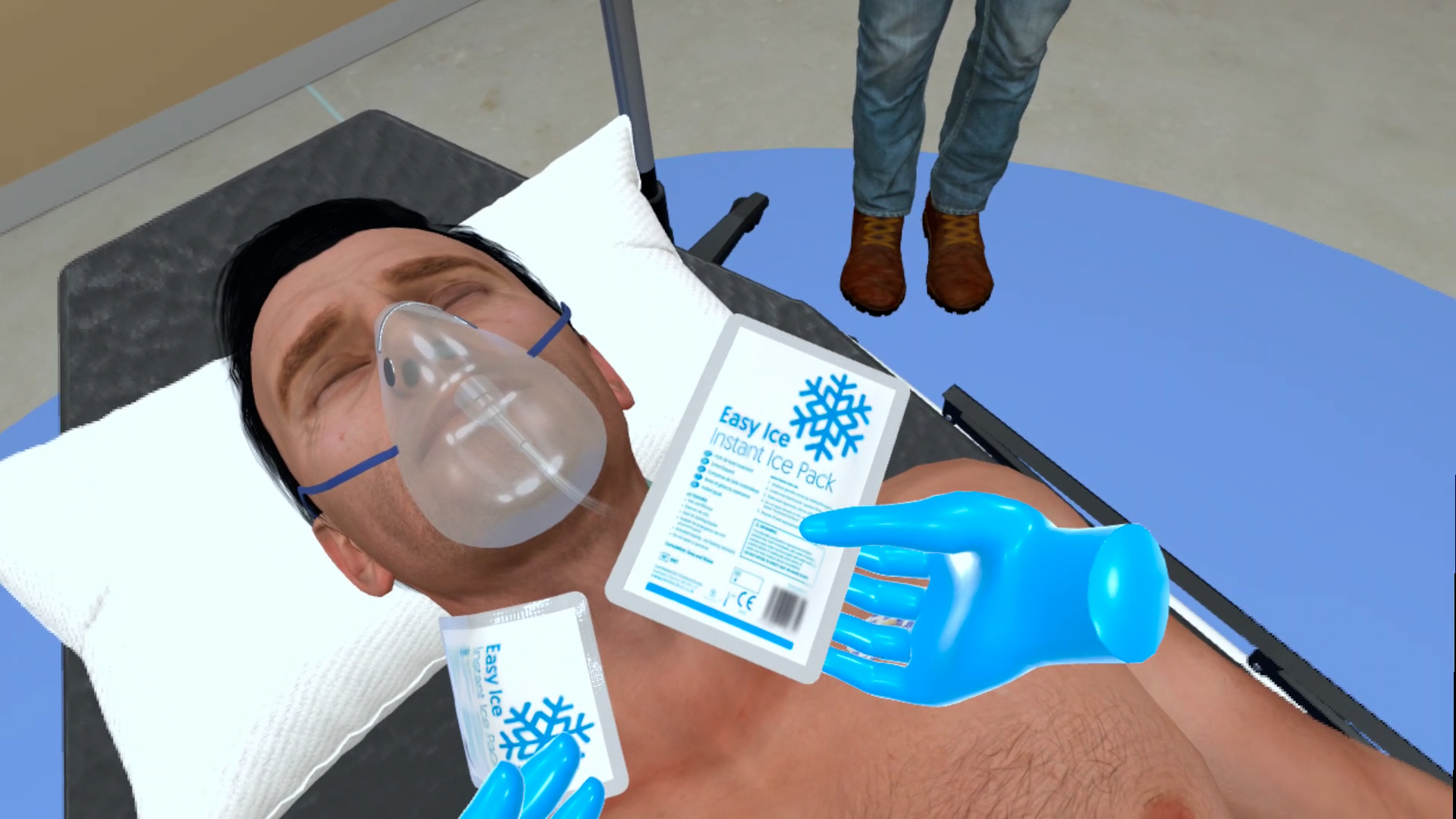Heat Stroke with Altered Mental Status
James Smith, a 40-year-old landscaper, presents with heat stroke and altered mental state. He is brought to the emergency department by his co-worker. Working outdoors in the hot weather, James had been complaining of a headache and light-headedness. Thirty minutes later his co-worker discovered James passed out in the sun and in a confused state.
This open scenario is designed to help learners recognize the signs and symptoms of a heat-related emergency and initiate aggressive cooling interventions.
- Recognizing signs and symptoms of heat related emergencies
- Implementing prompt emergent cooling procedures
- Providing appropriate diagnostic and supportive care

- Hifumi, T., Kondo, Y., Shimizu, K., & Miyake, Y. (2018). Heat stroke: Pathogenesis, diagnosis, and current treatment. Journal of Intensive Care, 6, 29.
Customize Your Program
Get rid of the editor. Adopt in-VR customization.
MedVR Education is bringing to you in-VR customization that will enable you to put together your own simulations by making selections from a wide range of feature choices.
- Select patient from a diverse background
- Choose preferred virtual environment
- Configure patient vitals
- Define simulation duration
- Create patient history and train with AI-Humans
- Customize session-end debriefing
- …..many more to come

 Multi-playerSessions
Multi-playerSessions Physics-based Interactions
Physics-based Interactions
Core Skills Training

Managing Heat Stroke with Altered Mental State
As part of this open scenario, the learner is presented with a patient suffering heat stroke and altered mental state. After obtaining patient history, the learner will proceed with recording the patient’s vitals and performing rapid physical examination. This will be followed by initiating life-saving measures like placing an oxygen mask and normal saline IV and finally implementing emergent cooling procedures.
This scenario is set in a photorealistic environment, and all necessary affordances are made available to assist learners in performing their tasks with efficiency and effectiveness.
Debriefing
End-of-task debriefing to assess one’s performance, evaluate actions, and get the most out of the training. Examples of topics being touched upon in the debriefing include the following:
- Thorough patient assessment
- Completion of necessary steps
- Correct medication administration to patient
- Sequential completion of task
- Execution of time-sensitive tasks






